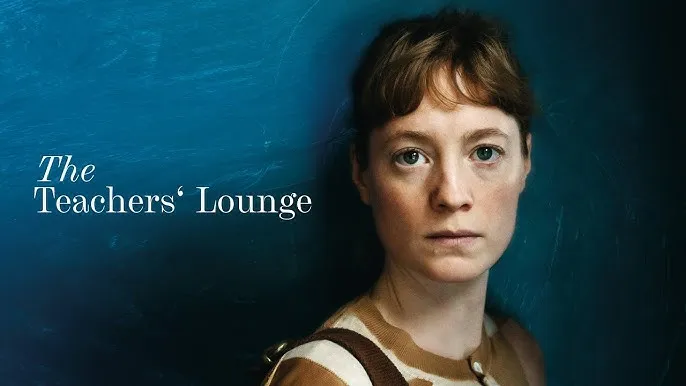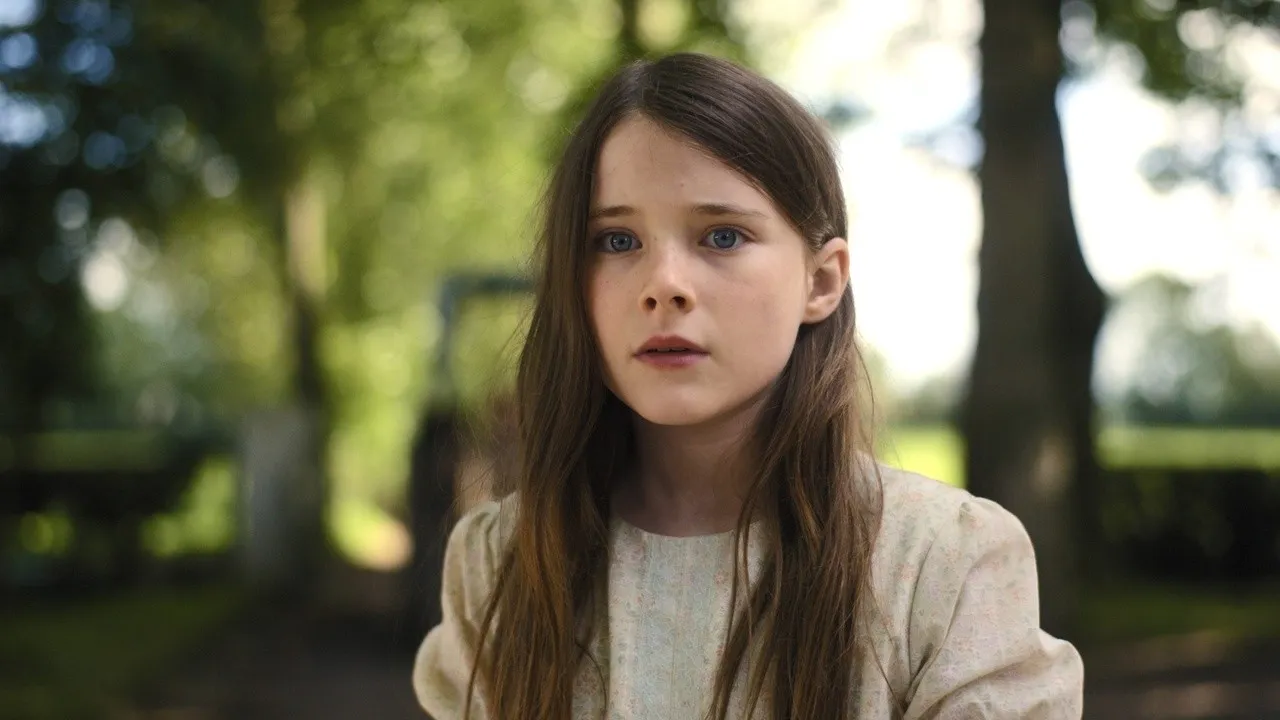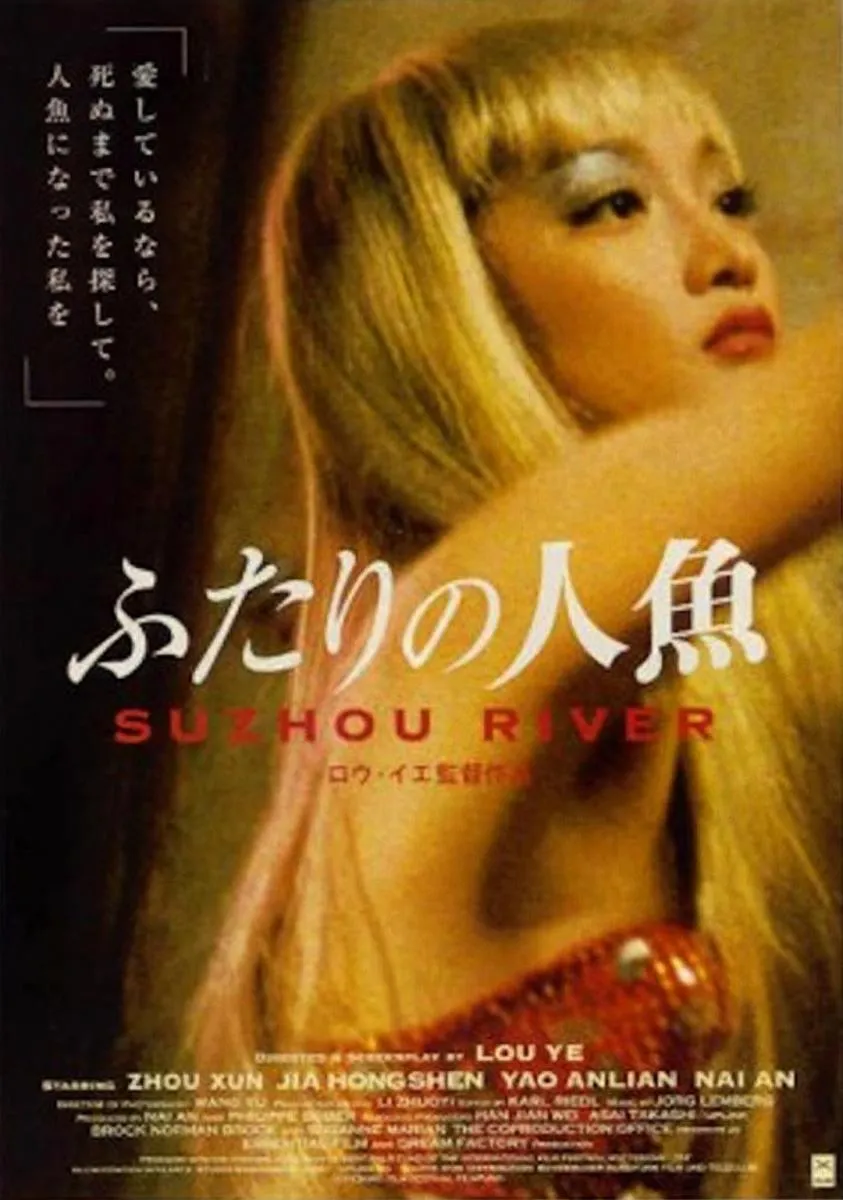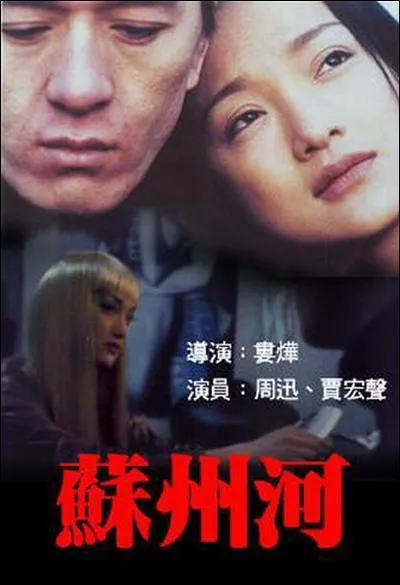
Escrita y dirigida por Lou Ye
Let's take a break from the Oscars and all their nominated films: let's talk about weird cinema, the kind that I like, that is not mainstream, that is from past decades, of names that are not well known or already forgotten, from a remote country, movies filmed in a language I don't know how to speak, with a low budget and an intimate and personal script... something like that.
Hagamos un break de los Oscars y todas sus películas nominadas: hablemos de cine raro, de ese que me gusta a mí, que no es mainstream, que es de décadas pasadas, de nombres no muy conocidos o ya olvidados, provenientes de un país remoto, películas filmadas en un idioma que no sé hablar, con un presupuesto bajo y un guión íntimo y personal... algo de eso.
This time we are going to China, where Lou Ye wrote and directed in 2000 what is his most remembered film to this day: Suzhou he (Suzhou River). The story begins with a videographer who is hired by the owner of a bar to record some sequences of his establishment for advertising purposes and one of the attractions of the place is a girl who swims in a pond dressed as a mermaid. The girl's name is Meimei. A romance arises between the videographer and Meimei that is captured by a nervous camera, always in motion (which remains throughout most of the film) and that conveys the sensation of a first-person narration. It's as if we ourselves were walking through the streets of Shanghai, looking out of the windows and balconies, crossing traffic and recording Meimei by our side. However, a few minutes into the film we realize that the central story is not that of Meimei and the videographer (who in turn acts as narrator of the story) but that of another couple. Meimei asks the narrator if he would look for her like Mardar did for Moudan, and this is the true story of Suzhou River. That of a motorized messenger named Mardar that Meimei met and that he met when he was looking for a love from his youth, lost years ago, a girl named Moudan who physically is very similar to Meimei. In fact, Mardar thought Meimei was Moudan and that's why he chased her for a while.
Esta vez nos vamos a China, en donde Lou Ye escribió y dirigió en el año 2000 la que hasta hoy es su película más recordada: Suzhou he (Suzhou River). La historia inicia con un videografo que es contratado por el dueño de un bar para grabar algunas secuencias de su local con fines publicitarios y uno de los atractivos del lugar es una chica que nada en un estanque vestida de sirena. La chica se llama Meimei. Entre el videografo y Meimei surge un romance que es capturado por una cámara nerviosa, siempre en movimiento (que se mantiene durante la mayor parte de la película) y que transmite la sensación de una narración en primera persona. Es como si nosotros mismos estuviéramos caminando por las calles de Shanghái, nos asomáramos a las ventanas y balcones, atravesáramos el tráfico y grabásemos a Meimei a nuestro lado. Sin embargo, a los pocos minutos de iniciada la película nos damos cuenta de que la historia central no es la de Meimei y el videografo (que a su vez hace de narrador de la histora) sino la de otra pareja. Meimei pregunta al narrador si él la buscaría como hizo Mardar con Moudan, y esta es la verdadera historia de Suzhou River. La de un mensajero motorizado llamado Mardar que Meimei conoció y que conoció cuando él buscaba a un amor de la juventud, perdido años atrás, una chica llamada Moudan que físicamente es muy parecida a Meimei. De hecho, Mardar pensó que Meimei era Moudan y por eso la persiguió durante un tiempo.

And then we are told how one day, in the middle of some illicit business, Mardar is entrusted with a peculiar shipment: as a man is going to receive a visit from his new lover, he asks the motorist to take his 16-year-old daughter to her aunt's house. He does this every time he has a new woman (the man is a widower) and then Mardar begins to meet the girl, Moudan, and they fall in love. Or so it seems.
Y entonces se nos cuenta cómo un día, en medio de unos negocios ilícitos, se le encomienda a Mardar un envío peculiar: como un hombre va a recibir la visita de su nueva amante, le pide al motorizado que lleve a su hija de 16 años a casa de su tía. Esto lo hace cada vez que tiene una nueva mujer (el hombre es viudo) y entonces Mardar comienza a conocer a la chica, Moudan, y se enamoran. O eso parece.
Because then a series of events happen that I will not reveal out of respect for those who want to see the film. It's true that it's not recent, but it's not very well known either, which is why I don't want to talk at length about things that might surprise the viewer. The truth is that this romantic drama is also tinged with crime, betrayal, guilt, remorse, regret, a touch of unreality and a lot of nostalgia. Then, we pick up the story when, years after losing Moudan, Mardar returns to Shanghai to look for her. He doesn't know where she is - in fact he doesn't know if she still is - but he searches for her with determination until chance makes him come face to face with Meimei, a girl who looks exactly like Moudan, but who claims not to be her. The similarities are several, and the symbols that connect one to the other don't seem to be the result of chance, or is Mardar seeing what he wants to see and not what is really there? The last third of the film provides answers to all these questions, but leaves us with bigger questions and makes us reflect on illusions, love, forgiveness and the weight of the ghosts of lost loves, ghosts that sometimes haunt not only to those who loved them but also to those who knew their story. That is why at the end the same question returns as at the beginning, when Meimei asks the videographer If one day I leave you, would you look for me? like Mardar?
Porque luego suceden una serie de acontecimientos que no revelaré por respeto a quienes quieran ver la película. Es cierto que no es reciente, pero tampoco es muy conocida, razón por la cual no quiero hablar ampliamente de las cosas que pudieran sorprender al espectador. Lo cierto es que este drama romántico se tiñe también de crimen, traición, culpa, remordimiento, arrepentimiento, un toque de irrealidad y muchísima nostalgia. Luego, retomamos la historia cuando, años después de haber perdido a Moudan, Mardar vuelve a Shanghái a buscarla. No sabe dónde está - de hecho no sabe si aún está - pero la busca con determinación hasta que el azar lo hace toparse de frente con Meimei, una chica que se ve exactamente igual a Moudan, pero que asegura no ser ella. Las similitudes son varias, y los símbolos que conectan a una con otra no parecen ser fruto de la casualidad, ¿o acaso Mardar está viendo lo que quiere ver y no lo que realmente hay allí? El último tercio de la película brinda respuestas a todas estas cuestiones, pero nos deja con preguntas mayores y nos hace reflexionar sobre las ilusiones, el amor, el perdón y el peso de los fantasmas de los amores perdidos, fantasmas que a veces acechan no sólo a quienes les amaron sino también a quienes conocieron su historia. Es por eso que al final vuelve la misma pregunta que al inicio, cuando Meimei le pregunta al videografo Si algún día te dejo, ¿me buscarías? ¿como Mardar?

The presence of the Suzhou River, the urban and night landscapes, the moving camera that sometimes reminds us of some of Wong Kar Wai's works and a story full of many emotions, make this film a great story. I don't know much Chinese cinema (beyond Zhang Yimou), but among all the Asian cinema I've seen, Suzhou River is a great demonstration of personal narrative and optimization of resources. Nothing is missing, nor is there anything left over, from this story of just over eighty minutes that perhaps uses the voice of the narrator in off-screen a little more than I usually tolerate in the cinema, but I think it works well here, especially all because it's combined with the use of the camera and not only does it make sense to me but it makes me feel that there was no other way to tell this story than with that narration, those close-ups of Meimei's face, those urban shots in motion and those two endings full of drama but also poetry. I still prefer the works of Wong Kar Wai, of course, but if you haven't seen much Chinese cinema or want to see some Asian cinema that is different from Korean stories or Japanese productions, many of which have a larger budget, I recommend this one little gem that is available on MUBI and although I had not heard anything about it or Lou Ye, maybe some of you have, have you seen this movie? what did you think? I read you in the comments.
La presencia del río Suzhou, los paisajes urbanos y nocturnos, la cámara en movimiento que a veces recuerda algunos trabajos de Wong Kar Wai y una historia llena de muchas emociones, hacen de esta película una gran historia. No conozco mucho cine chino (más allá de Zhang Yimou), pero dentro de todo el cine asiático que he visto, Suzhou River es una gran demostración de narrativa personal y optimización de recursos. No le falta nada, ni le sobra tampoco, a esta historia de poco más de ochenta minutos que tal vez utiliza la voz del narrador en off un poco más de lo que suelo tolerar en el cine, pero que creo que funciona bien acá, sobre todo porque se combina con el uso de la cámara y no sólo me hace sentido sino que me hace sentir que no había otra manera de contarnos esta historia que con esa narración, esos close-ups del rostro de Meimei, esas tomas urbanas en movimiento y esos dos finales cargados de drama pero también de poesía. Sigo prefiriendo los trabajos de Wong Kar Wai, por supuesto, pero si no han visto mucho cine chino o quieren ver algo de cine asiático diferente a las historias coreanas o a las producciones japonesas, muchas de las cuales cuentan con un presupuesto mayor, les recomiendo esta joyita que está disponible en MUBI y aunque yo no había oído nada de ella ni de Lou Ye, tal vez alguno de ustedes sí, ¿han visto esta película? ¿qué les pareció? Los leo en los comentarios.
Reviewed by | Reseñado por @cristiancaicedo
Other posts that may interest you | Otros posts que pueden interesarte:
  |
|---|


